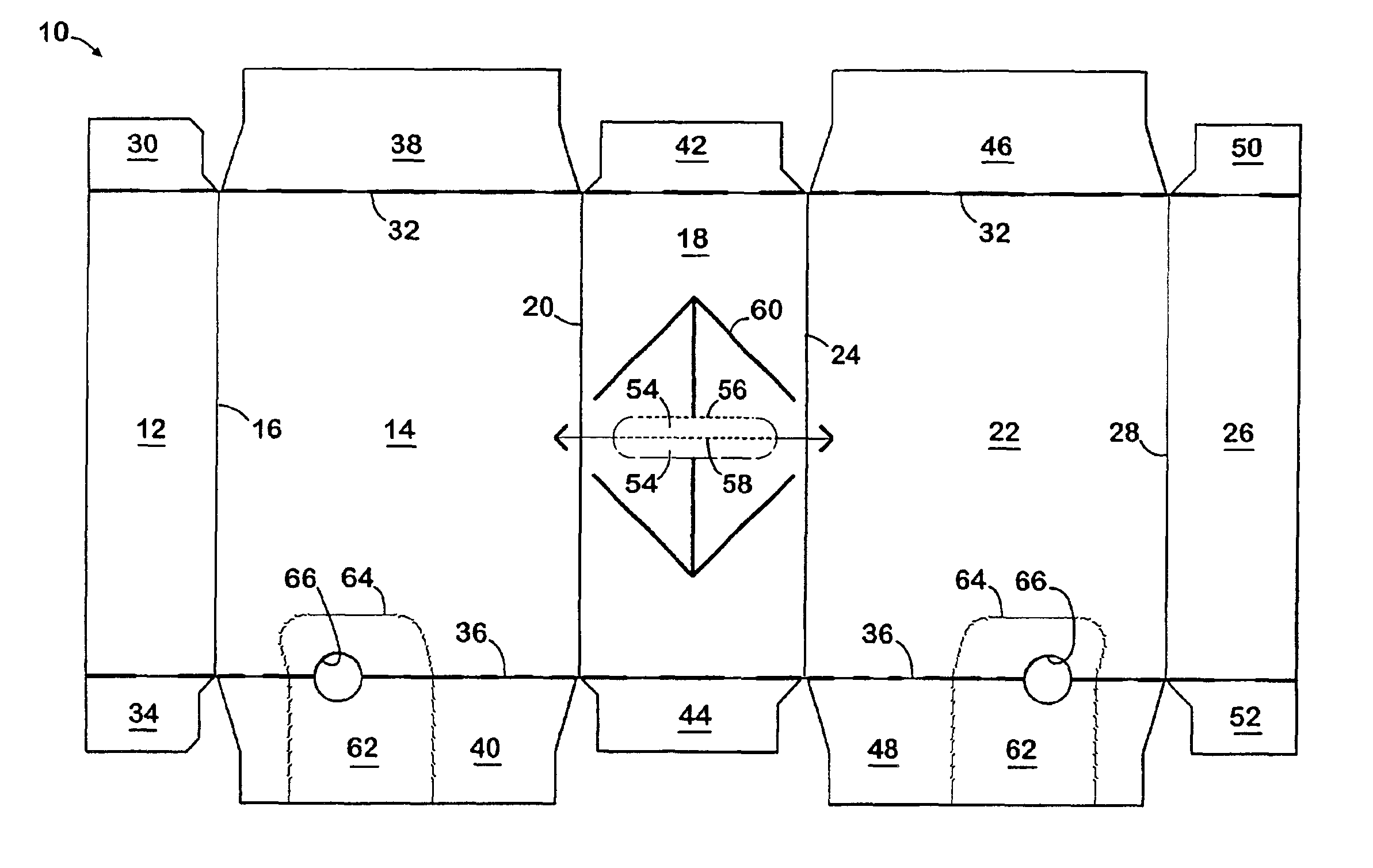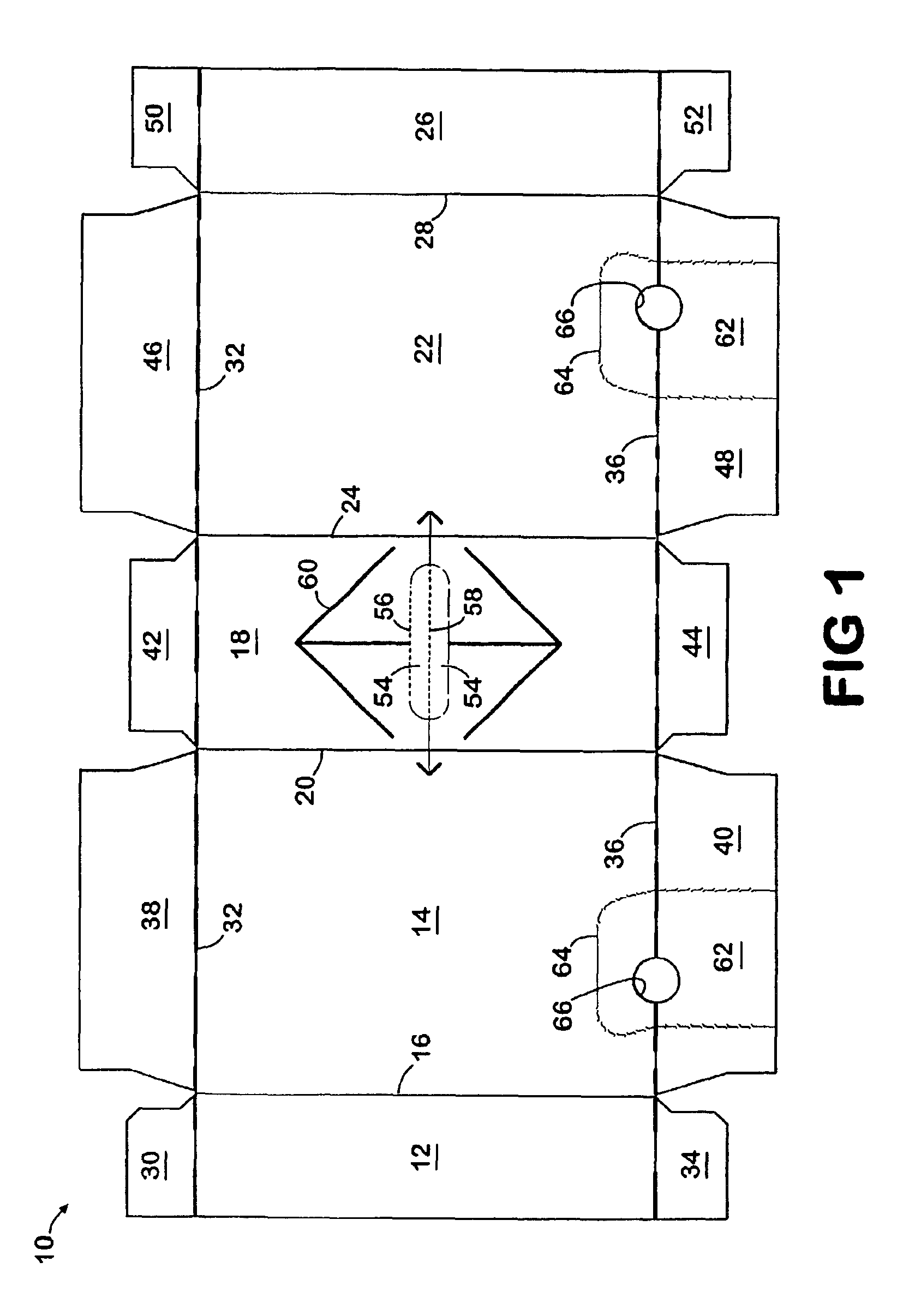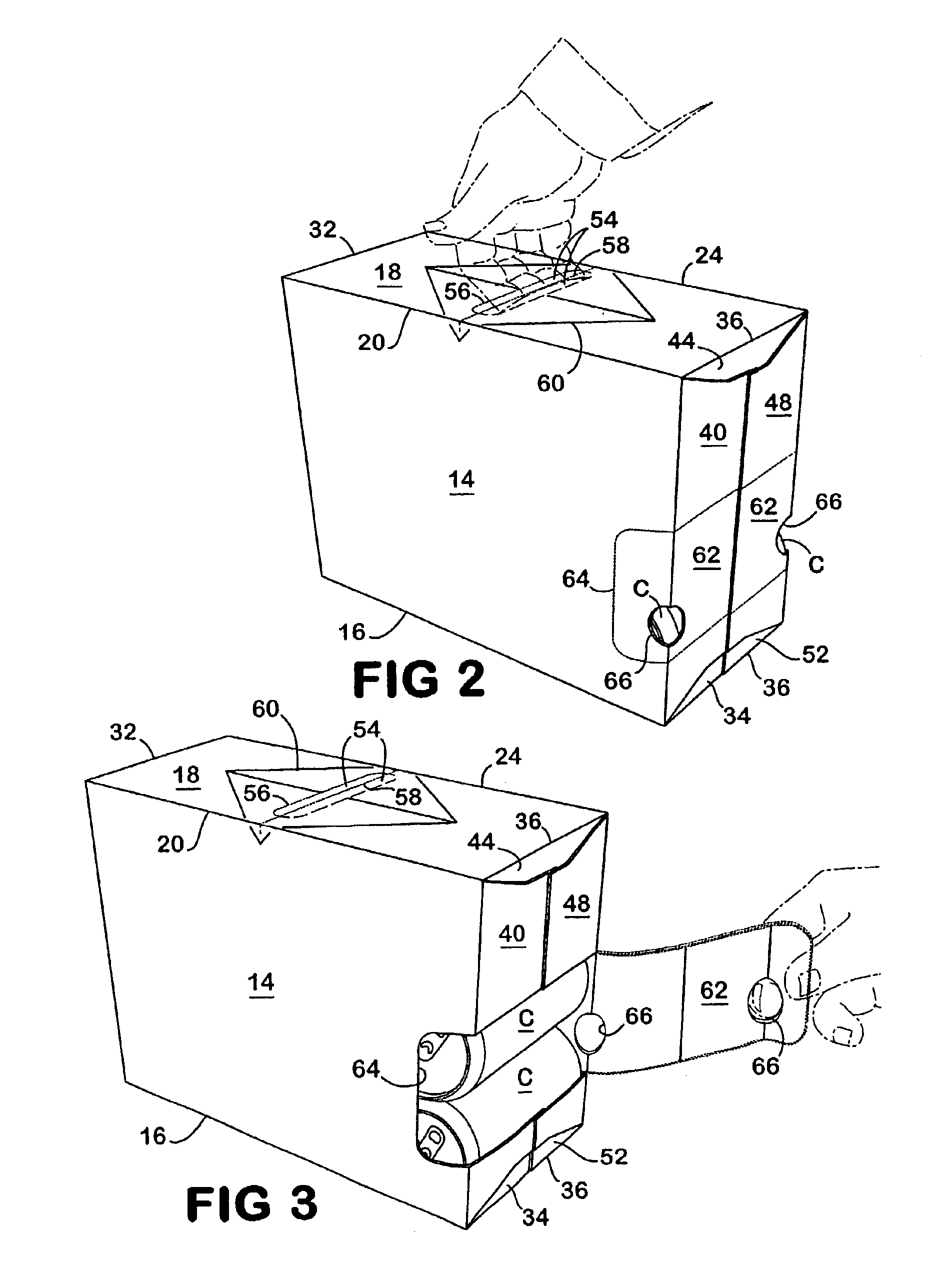Paperboard carton with a new type of dispenser
a paperboard and dispenser technology, applied in the direction of instruments, transportation and packaging, apparatus for dispensing discrete objects, etc., can solve the problems of affecting affecting the safety of the dispensing flap, and falling to the floor, etc., to achieve the integrity of the carton, easy grasping and removal, and easy insertion
- Summary
- Abstract
- Description
- Claims
- Application Information
AI Technical Summary
Benefits of technology
Problems solved by technology
Method used
Image
Examples
Embodiment Construction
[0022]The present invention is intended primarily for use with cans of the type used to contain soft drinks, beer and the like. The blank 10 is formed from a foldable sheet of material, such as paperboard. The blank has a bottom flap 12 which is connected to side panel 14 by fold line 16. Side panel 14 is connected to top panel 18 by fold line 20 and in turn connected to side panel 22 by fold line 24. Side panel 22 is connected to bottom flap 26 by fold line 28. Bottom end flaps 30 and 34 are connected to bottom flap 12 by fold lines 32 and 36 respectively. Side end flaps 38 and 40 are connected to side panel 14 by fold lines 32 and 36 respectively. Top end flaps 42 and 44 are connected to top panel 18 by fold lines 32 and 36 respectively. Side end flaps 46 and 48 are connected to side panel 22 by fold lines 32 and 36 respectively. Bottom end flaps 50 and 52 are connected to bottom flap 26 by fold lines 32 and 36 respectively. A handle may be constructed in top panel 18 by forming s...
PUM
| Property | Measurement | Unit |
|---|---|---|
| height | aaaaa | aaaaa |
| height | aaaaa | aaaaa |
| diameter | aaaaa | aaaaa |
Abstract
Description
Claims
Application Information
 Login to View More
Login to View More - R&D
- Intellectual Property
- Life Sciences
- Materials
- Tech Scout
- Unparalleled Data Quality
- Higher Quality Content
- 60% Fewer Hallucinations
Browse by: Latest US Patents, China's latest patents, Technical Efficacy Thesaurus, Application Domain, Technology Topic, Popular Technical Reports.
© 2025 PatSnap. All rights reserved.Legal|Privacy policy|Modern Slavery Act Transparency Statement|Sitemap|About US| Contact US: help@patsnap.com



